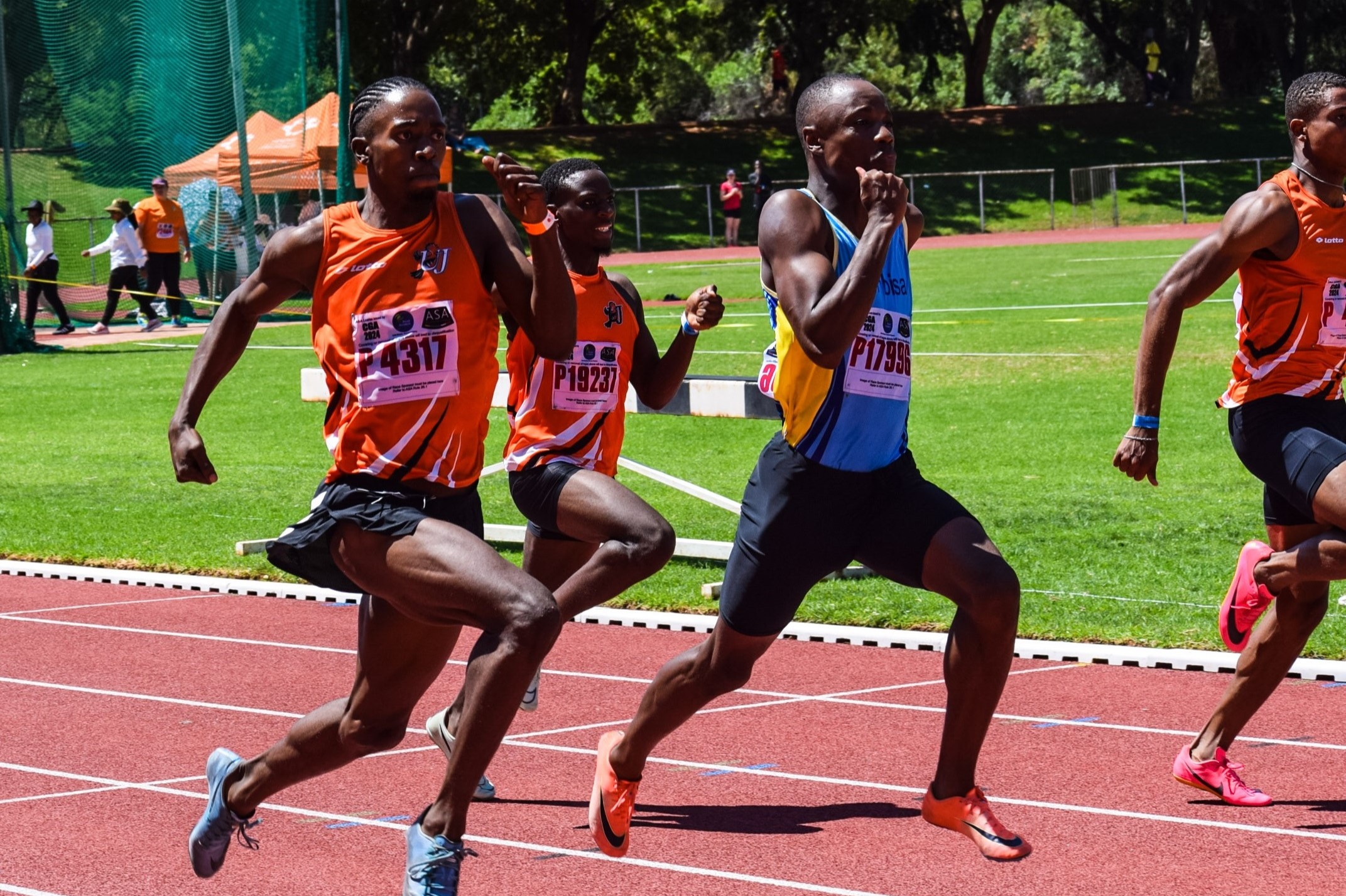Our leaders must be connected to our people, technology and the world. It is therefore, imperative that as educators we offer student leaders education in its totality and impart them the skills to exercise leadership in the fourth industrial revolution, writes Professor Tshilidzi Marwala.
The Vice-Chancellor and Principal of the University of Johannesburg (UJ) and the co-author of the book Smart Maintenance for Human-Robot Interaction: An Intelligent Search Algorithmic Perspective, Prof Marwala recently penned an opinion piece, Leadership in the fourth industrial age, published by the Sunday Independent, 8 July 2018.
Leadership in the fourth industrial age (radio/audio https://www.pressreader.com/south-africa/the-sunday-independent/20180708/281908773902709/radio)
Last week I accompanied the Minister of Higher Education and Training Mrs Naledi Pandor when she met student leaders from universities and the Technical Vocational Education and Training (TVET) colleges on our Soweto Campus.
I wondered whether there were any pathfinders among these student leaders – people who dared to go where no one else in their communities was brave enough to tread. They were mafukuzela because they are the ones who, despite obstacles, achieve their goals.
I listened attentively to observe if they had the necessary logic and insight to tackle the problems of the current age, defined by the Fourth Industrial Revolution.
I wondered whether there were pathfinders such as Charlotte Makgomo Maxeke, the first black South African woman to receive a university degree more than 120 years ago in the United States of America or Frieda Bokwe, the first black South African woman to receive a university degree from a South African university, or John Tengo Jabavu, who founded the newspaper Imvo Zabantsundu, in 1884.
As I listened to the problems of these young students, I wondered whether leadership in the Fourth Industrial Revolution should be any different from leadership at any other revolutions.
The first, second and the third industrial revolutions were about the centrality of people in the production of goods and services, and therefore required people to specialise. These revolutions required people to go to work and do as their bosses instructed. We in South Africa were spectators to and not participants in these industrial revolutions. Leadership in these revolutions was mainly limited to the ability to command and control the masses.
Not so for the fourth industrial revolution, where the intelligent machine is the central ingredient, as it requires innovation, learning, analytics, agility, global mindset, cultural tolerance, diversity and the ability to manage conflict.
The first three revolutions were very destructive to the environment, whereas the Fourth Industrial Revolution according to the Chinese President Xi Jinping requires that we “protect the environment while pursuing economic and social progress – to achieve harmony between man and nature, and harmony between man and society.”
I wondered whether our student leaders understand industrial revolutions and their impact on people and the environment.
It became apparent to me, that due to the complexity of problems that face humanity today, those who do not know should not lead.
Historically, in South Africa, those who had more knowledge and education have always led us. Leaders such as Maxeke, Bokwe and Jabavu paved a way for us to have the confidence to succeed.
Maxeke’s legacy lives on through the Wilberforce Community College in Evaton outside Johannesburg. Bokwe’s legacy lives on by the recent statistics revealing that more women attend higher education today than men do. Jabavu’s legacy lives on by the numerous newspapers that serve the African people today.
However, this is not enough.
Are our student leaders ready to transform our society from a developing to a developed country?
For us to succeed as a nation in the Fourth Industrial Revolution, we must be able to provide our people with education in its totality. This means that those who are interested in science and technology should also be required to study human and social sciences and vice versa.
Why is knowledge a crucial tool for this revolution? Socially, knowledge liberates us from superstitious thinking and equips us to tackle complex problems.
Are our student leaders receiving education in its totality?
In 1978, Chinese leader Deng Xiaoping was changing China, which had lagged behind the West for 500 years and suffered the humiliation of being invaded by Japan, he realised that the centre of his strategy should be education. He put forward what he termed the four modernisations – advancement in agriculture, industry, national defence, science, and technology.
In this regard, he reoriented the Chinese education system to be more international, modern and forward-looking.
The results made China the most dynamic economy of our time. Are our student leaders ready to come up with theories and practices that will transform the economic landscape of our continent? Why is this Chinese strategy relevant to South Africa, particularly, as we enter the Fourth Industrial Age? Its importance cannot be overstated because as we tackle the problems of unemployment, poverty and inequality, economic growth becomes even more crucial.
As we tackle the problems of our shrinking industries, we need to understand issues of automation, technology and human capital in order to improve the quality of life of our people.
Any collective knowledge gap in our understanding of technology or of global economics or our understanding of human capital competency will derail our ambition of creating a developed society.
Are our student leaders closing the knowledge gap that exists between us and the rest of the world? Going forward, what kind of education should we introduce in South Africa? We should think about starting education earlier than we do, by introducing compulsory pre-education.
Masaru Ibuka, one of the two founders of the Japanese electronics company Sony, believed that the most crucial part of education happens before the age of three. Therefore, we ought to foster creativity in our educational experience.
In this way, we will produce a population that is orientated towards solutions and not complaints. We need to foster multi-dimensional thinking skills, whereby people can connect equally with machines and humans.
We need to foster the culture of discipline and, in this regard, must seriously revisit the issue of youth national service. Are our student leaders disciplined enough to tackle global competition?
All these will be achieved if we have dynamic leadership. We need to train leaders who are able to make rational decisions based on logic and facts. Rational leadership strives for efficiency and does not waste resources. Our leaders must be able to make effective decisions, even with incomplete and imperfect information. In our book Artificial intelligence for rational decision making, we propose methods for making good decisions even in the presence of incomplete information.
We need to train leaders who know how to listen and to interpret the message, in order to make decisions that benefit us all. These leaders must be able to negotiate a better deal for us even in the presence of power asymmetry.
The idea of understanding and managing information asymmetry was first proposed by the Nobel Laureates, George Akerloff, Micheal Spence and Joseph Stiglitz, and recent studies have shown that technology can reduce information asymmetry for better decision making.
We need to create a culture in which efficiency, prudence and minimalism in consumption are inculcated. In this regard, the efficient society hypothesis must define our communities.
Our leaders must be connected to our people, technology and the world. It is, therefore, imperative that as educators we offer these student leaders, education in its totality and impart them with the skills to exercise leadership in the Fourth Industrial Revolution.
• The views expressed in this article are that of the author/s and do not necessarily reflect that of the University of Johannesburg.



